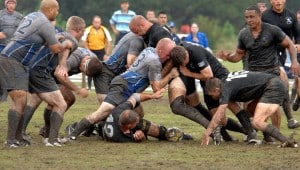 Youth sports programs are often advertised as a means through which kids can be taught about a number of principles they will need to understand in all facets of life. Whether it is teamwork, consistency or the simple value of hard work, athletic competition is one of the most ideal ways to promote the values and principles necessary to succeed in life and in business as well. This is why a recent John Pryor rugby review focused on how businesses in Australia can utilize rugby and other sports as a way to promote the kinds of qualities that tend to be most beneficial to a business.
Youth sports programs are often advertised as a means through which kids can be taught about a number of principles they will need to understand in all facets of life. Whether it is teamwork, consistency or the simple value of hard work, athletic competition is one of the most ideal ways to promote the values and principles necessary to succeed in life and in business as well. This is why a recent John Pryor rugby review focused on how businesses in Australia can utilize rugby and other sports as a way to promote the kinds of qualities that tend to be most beneficial to a business.
Companies tend to value activities that yield measurable gains, but there are certain activities capable of generating beneficial outcomes that do not always show up in the business analytics. Participating in a recreational rugby league or adhering to a training program as a group for an extended period of time may reap untold rewards that are simply immeasurable. When it comes to building camaraderie and fostering a deeper sense of the value of teamwork, there are few better options than those available through the use of just about any type of athletic competition, especially through the involvement in a sport so beloved as rugby.
